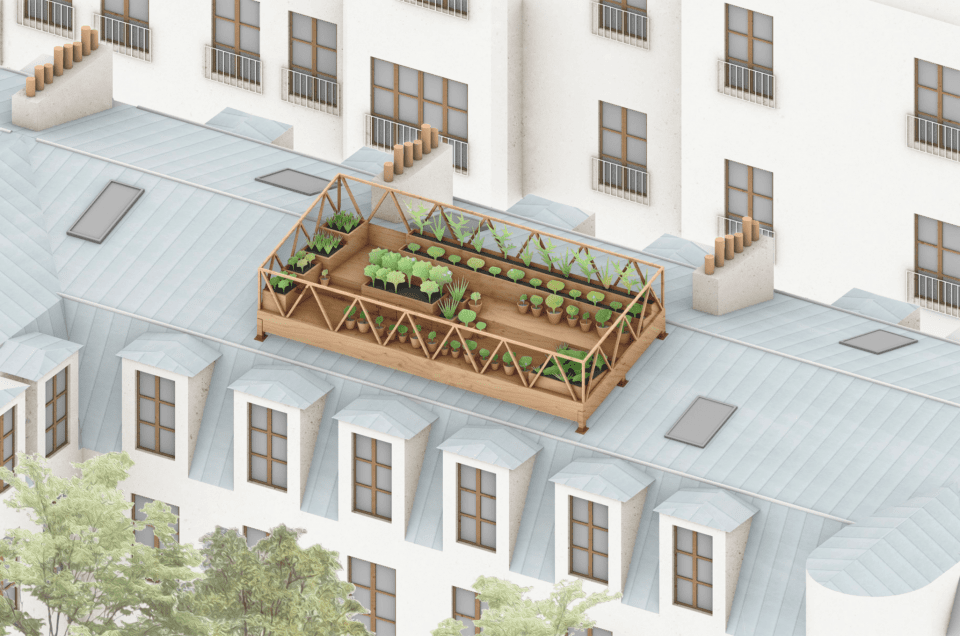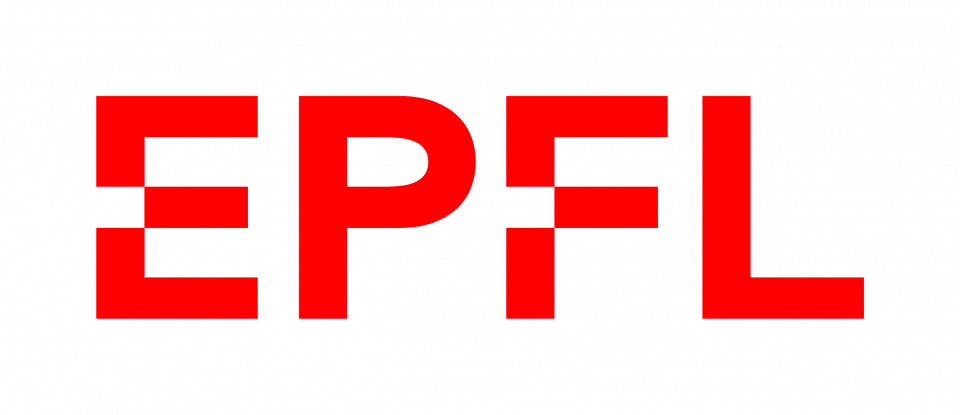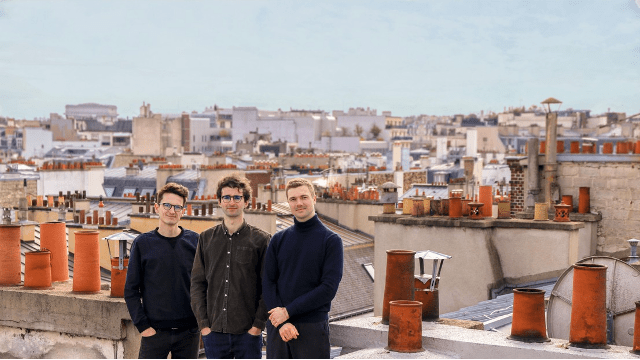Three EPFL architecture graduates founded Roofscapes, a Paris-based company that aims to turn the city’s sloping rooftops into gardens. We spoke with the founders about their entrepreneurial adventure.
Olivier Faber, Eytan Levi and Tim Cousin met in 2014, when they were studying for their Bachelor's in architecture at EPFL. “Before then, we’d crossed paths but never really gotten to know each other,” says Faber. They all left Lausanne shortly after graduating and embarked on “standard” career paths in their field, pursuing internships at architecture practices around the world – in London, Melbourne, Basel, Copenhagen and Mumbai.
But they all soon came to the same conclusion. “We found ourselves on the same intellectual wavelength, realizing that a typical job in the architecture industry would run counter to our environmental beliefs,” says Faber.So they met up for a week in the summer of 2017 to explore more “disruptive” ways of pursuing their profession. This prompted them to enroll in the Master’s program in architecture at MIT and, ultimately, to found Roofscapes in Paris in 2020.
 Step 04: Interlocking flooring systems, https://www.roofscapes.studio/
Step 04: Interlocking flooring systems, https://www.roofscapes.studio/
Roofscapes aims to make European cities more resilient to climate change by turning sloping rooftops into green spaces. These urban gardens stand to bring several benefits, such as helping keep cities cool in the summer, protecting rooftop building materials and introducing more vegetation into cities. “For the first couple of years of our new business, we were focused mainly on resolving technical issues, making sure our business plan was financially viable and handling administrative matters,” says Levi. They also conducted market research to ensure there was sufficient demand for their structures and sought out places where they could run pilot tests. So far, their idea has been successful. “Nowadays we’re contacted every week by homeowners, landlords and property developers,” says Levi. “That shows just how interested people are in turning urban rooftops into usable gardens.”
As heat waves become increasingly frequent in Europe and vegetation is sorely lacking in many cities, Roofscapes intends to leverage a resource that’s largely untapped.
“In dense agglomerations like Paris, rooftops can account for as much as a third of the surface area,” says Faber. “That’s usually more than all of a city’s green spaces combined!”
However, Roofscape’s founders don’t intend to focus only on the French capital. Cousin explains: “The nature of our business means we have to work with a lot of local partners, so for now we’re limiting ourselves to Paris. But heat islands are a big problem in a number of European cities, so we plan to eventually expand into other markets too.”
When asked how they’re able to work together so efficiently, the three entrepreneurs point to their experience as architecture students at EPFL. “Our classes included workshops where we each had our own work area,” says Levi. “We saw that again at MIT, but it’s not something all universities offer.” These open-space workshops helped foster teamwork and collaboration among the students. “We met at one of these workshops, and that was instrumental in shaping how we pooled our skills going forward,” adds Levi. Another benefit they found to studying at EPFL was the cross-disciplinary nature of the School.
“In addition to the professors at our architecture department, we also got to tap into the resources of a large university,” says Cousin. “We worked alongside people from an array of scientific and engineering disciplines and took part in research projects with an international reach.”
Faber, Levi and Cousin, now at the head of a fast-growing business, have come a long way from their days in an EPFL classroom. They recently won an Innovation & Resilience grant from the City of Paris, and they’ll use the proceeds to make further progress on the goal they set themselves: give meaning to their careers and disrupt the architecture industry by tackling the issue of climate change, one rooftop at a time.

Comments0
Please log in to see or add a comment
Suggested Articles



